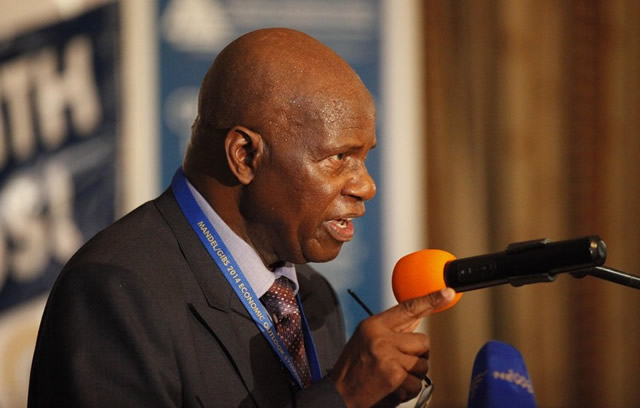How farmers get ripped off at tobacco floors


A tobacco farmer (above, left) negotiates for a reasonable price for her crop with an auction floor employee (second from right) in Harare yesterday in the presence of a Herald reporter (right) posing as a farmer. Picture by Ruvimbo Chakanyuka)
Elita Chikwati Agriculture Reporter—
Tobacco growers are losing vast sums of money to Class B buyers who have resurfaced at the auction floors, working in syndicates that involve staff there to lower prices and condemn bales that they then clandestinely buy and resell at high prices. The Tobacco Industry and Marketing Board in 2011 suspended Class B buyers after they were accused of lowering tobacco prices due to farmers.
TIMB chief executive Dr Andrew Matibiri yesterday said they had launched investigations into the matter.
“We suspended these buyers and we have not recalled them,” he said.
“These buyers are operating illegally and farmers should report such cases to the TIMB. There is an investigating team carrying out investigations, but the investigations become difficult because some farmers do not want to open up.”
Before they were banned, Class B buyers used to buy tobacco that would have been rejected for various reasons. They would regrade it and then sell it the auction floors.
Investigations by The Herald show that they are back and conniving with Class A buyers to reject as much tobacco as possible.
The average prices on the auction floor is US$4,99 per kilogramme.
When a farmer arrives at the floors, the syndicates tell them that they can pay them as little as US$2 per kg.
The farmers reject this and proceed to the merchants, but their tobacco is rejected on spurious grounds.
Stranded, they then return to the syndicates and sell their tobacco to them for a song. The syndicates then repackage the tobacco and sell it quite profitably on the auction floor.
The syndicates include floor staff and staff from the processing companies, and they operate from outside the auction premises.
This writer posed as a desperate farmer and approached a middleman, who is employed as a dispatch clerk at one of the three auction floors.
The dispatch clerk approached his “boss”, who works on the floor, and this writer was referred to an official from a tobacco processing company.
“We do not work alone, but we have bosses who approve our transactions and link us to the buyers,” said the clerk.
“I am just a runner and it is up to you to pay me after the transaction,” he said.
Another “runner” — who identified himself as Hillary — said he had five “bosses” who offered good prices.
“I have five good buyers who offer a higher price than that offered on the auction floor,” he said.
“I do not know exactly what the buyer does with the tobacco, but some of us resell the crop through the auction floors.”
Hillary said he could assist farmers get good prices.
Farmers said they knew they were being fleeced but they could not do anything about it because the syndicates could arrange to have their crop rejected on the floors.
“Farmers are not benefiting from the crop since there is a long chain of those who want to benefit,” he said.
“Those in the value chain end up benefiting more than the farmers. We are appealing to TIMB to intervene,” said a Chegutu farmer.
Farmers said the rate at which their tobacco was being downgraded and/or rejected was worrisome, and they were surprised that after the rejection they were always approached by people offering them around US$2 per kg.







Comments